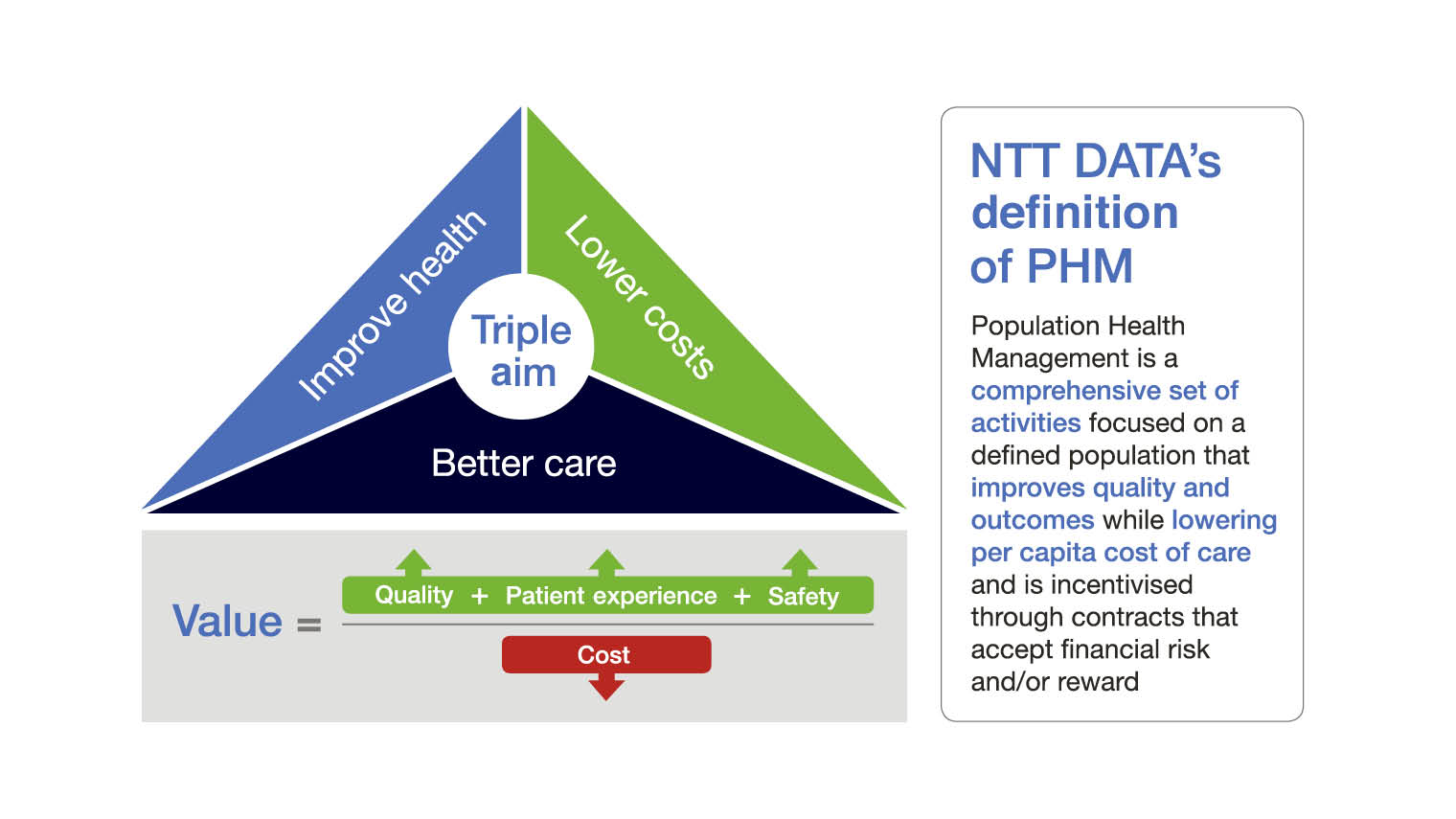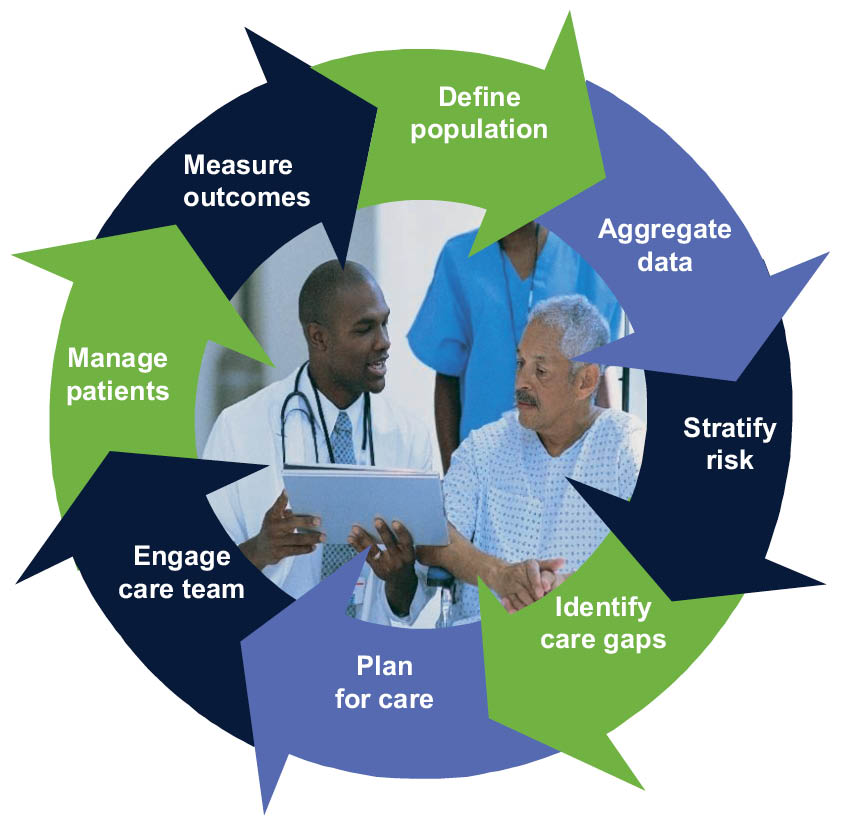The effect of digitisation is so profound that it is being described as the “fourth industrial revolution”. It has altered the way we communicate, how we do our banking, choose our holidays and book taxis, but much of the technology is still in its infancy and another wave of change is imminent.
Some of this change is emerging through innovative devices, including driverless cars and drones, to create an internet of things that is producing vast amounts of data. By analysing this data through artificial intelligence and machine-learning, organisations and entire industries can transform the services and products they deliver.
As a top-ten global IT services company, NTT DATA Services (formerly Dell Services) has been pushing the boundaries of digital transformation across the globe, working with clients in manufacturing, distribution, transport and financial services. In November 2016, NTT DATA acquired Dell Services to create an enlarged business with 40 years’ experience in healthcare. One of its key goals is to leverage its global expertise and apply it to healthcare in the UK.
Dr Masood Ahmed, medical director of healthcare and life sciences, says: “The NHS is in crisis, no doubt. We understand the huge financial pressures it is under, but technology can help transform it. Unfortunately the NHS has been painfully slow to adopt IT solutions that could help solve many of its problems. I find it mind-boggling that people can pull out their phone and control their heating at home or do their shopping and banking, yet within the NHS we are, in many respects, so limited in what we can do.”
The NHS has not been ignoring the issue and in 2014 NHS England published its Five Year Forward View. It has been looking at how, faced with a relentless increase in demand, it can modernise care, placing more emphasis on prevention and integration, and putting patients and communities in control of their health. The challenge now is how to accelerate change given its size, complexity and financial constraints.
Dr Sandesh Prabhu, global head of digital solutions and digital business services, says NTT DATA Services’ approach is to understand clients’ key challenges and the alignment between people, processes and technology to exploit capabilities in digital, analytics and automation to drive innovation.
We understand the huge financial pressures the NHS is under, but technology can help transform it
However, a key problem for the NHS is the exchange of patient information between NHS organisations and other health and social care service providers, improving the interoperability of their systems to enable more integrated care.
Many industries have solved this interoperability challenge. Sandeep Misra, global strategy leader of population health management, says: “Look at banking; it has developed ways to rapidly and securely exchange data, and has been using them for a long time.” Healthcare is taking notice and is beginning to catch up.
It is not just the IT systems of large organisations that have a role to play. New technology, including smartphones and wearable devices, is now part of our everyday life and can also be used as diagnostic tools by both patients and clinicians. This presents unparalleled opportunities for remote patient-monitoring to deliver more personalised, efficient care.
The ability to integrate technology across such a wide range of users, from the device on a patient’s wrist to the screen of a practice nurse in a GP’s surgery or a consultant in accident and emergency, offers the potential to transform the health system.
Achieving interoperability opens up a new field of population health management (PHM) which can incorporate social, economic and lifestyle data. This, most importantly, moves the focus from diagnosis and treatment to prediction and prevention – a paradigm shift that will drive a more sustainable NHS in the future.

Dr Ahmed says: “PHM is a huge focus for us. You will start to see massive changes in the way the NHS approaches it in the next few years.
“It is all about focusing on wellness rather than illness. PHM not only helps healthcare organisations target and co-ordinate care, but also encourages patients to take more responsibility for their own health and wellbeing.”
Although the NHS sees the opportunities presented by PHM, Dr Ahmed believes the health service needs expert help from organisations such as NTT DATA Services to exploit it.
Highlighting the company’s global reach and depth of expertise, he explains: “We can make change happen quickly, and devise solutions that work in an agile and flexible way.”

Part of NTT DATA Services’ approach has been to establish long-term partnerships, looking not at IT in isolation, but at the broader picture and not only within departments or hospitals, but also across local healthcare economies.
That often requires a change in the way organisations tackle problems, breaking down silos and working with all stakeholders, including managers, IT staff, clinicians, patients and regulators.
In some parts of the country, health and social care organisations are collaborating to improve efficiency and outcomes. NTT DATA Services has been working with the Walsall Alliance, a federation of GPs in the West Midlands, on how it could work with its partners to provide a system to support the health and wellbeing of a population of 130,000 patients.
Although the challenges facing the NHS are enormous, it has the opportunity to draw on proven solutions worldwide and in other industries. Technology has a massive role to play in helping it make the best use of its limited budget by freeing up financial and manpower resources.
Dr Ahmed says: “From a technology perspective, the NHS is at a pivotal point. My hope is that it will embrace change and start working with proven IT partners like ourselves to make it happen.
“If the NHS was a patient, I would say it’s in a critical condition, but it’s not terminal. The reason I know this is because I’ve seen the treatment work elsewhere and if you give our team the opportunity to write the prescription and help deliver the treatment, we can help with its recovery.”
For more information please contact [email protected]


